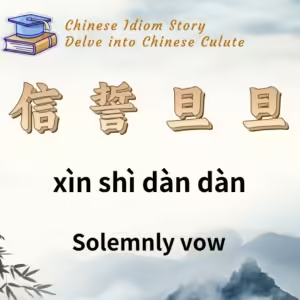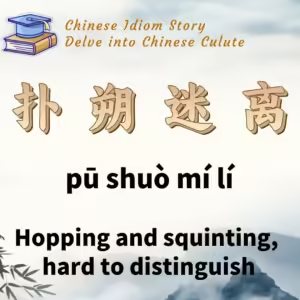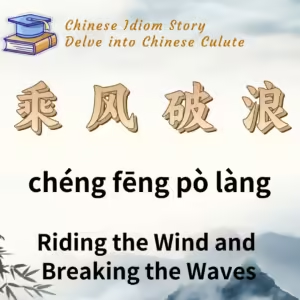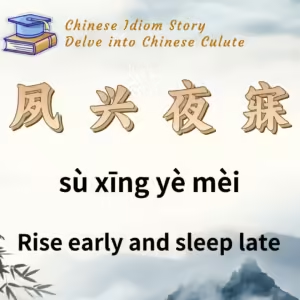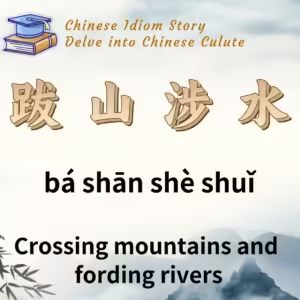
Chinese Idiom: 跋山涉水 (Ba Shan She Shui)
English Translation: Crossing mountains and fording rivers
pīn yīn: bá shān shè shuǐ
Idiom Meaning: This idiom describes the difficulties and hardships of a long journey.
Historical Source: The idiom comes from the poem Zai Chi (载驰) in the Book of Songs (诗经).
Idiom Story:
The author of this poem is Lady Xu Mu, a woman of insight and determination who loved her country. She was the daughter of Duke Wei Yi of the Spring and Autumn period and the wife of Duke Xu Mu. The poem was composed around the 18th year of King Hui of Zhou (659 BC), during the second year after the downfall of the Wei state. At that time, Lady Xu’s brother had been made the king of Wei but had temporarily settled in Cao (modern-day Huaxian County, Henan Province), later becoming Duke Wen of Wei.
When Lady Xu learned that her homeland had fallen to the Di people and that the remnants of Wei had fled across the Yellow River to seek refuge in Cao, she felt deeply pained and longed to personally visit Wei to offer condolences and seek help from powerful states. However, her wish was met with opposition from the officials of Xu, preventing her from fulfilling her desire. In response, she composed this poem to express her love for her country and her sorrow.
Historical records confirm this account, noting: “The poem Zai Chi was written by Lady Xu Mu. She mourned for her ancestral state and lamented her inability to help. Duke Wei Yi was destroyed by the Di people, causing the people of Wei to scatter and seek refuge in Cao. Lady Xu lamented the fall of Wei, saddened by Xu’s insignificance, and thought of returning to comfort her brother; however, she was unable to do so, hence she composed this poem.”
Zai Chi is one of the renowned pieces in the Book of Songs, consisting of four stanzas. The first stanza imagines Lady Xu racing back to Wei to provide comfort during its time of distress. The second and third stanzas express her frustration at the officials of Xu for not supporting her plans, criticizing them as immature and reckless. The fourth stanza imagines herself appealing for help from powerful states, expressing her desire to act on her thoughts.
The full text of the poem is as follows:
Driving my horse and chariot, I hurry back to comfort the Lord of Wei.
The horse gallops swiftly, aiming for Cao.
The Wei lords cross mountains and rivers to report the disaster; my heart is filled with sorrow.
You do not support me, so I cannot return.
Seeing your lack of good plans, my thoughts are not far-fetched.
You do not support me, so I cannot return;
Seeing your lack of good plans, my thoughts are not impractical.
Climbing up that high hill, I gather the bellflower.
Women are often sentimental, each with their own views.
The lords of Xu reproach me, how naive and reckless!
I walk in the fields of Wei, where the wheat grows lush.
I want to appeal to the great powers; who can sympathize or help?
You gentlemen, do not think me foolish.
No matter how you ponder, you cannot match my thorough consideration!
The essence of the poem conveys her urgency and deep emotions about her homeland’s plight. Lady Xu expresses her desire to help Wei and her frustration towards the officials of Xu for their lack of support. The vivid imagery of her journey, “crossing mountains and fording rivers,” symbolizes the challenges she would face in her quest to help her nation.


